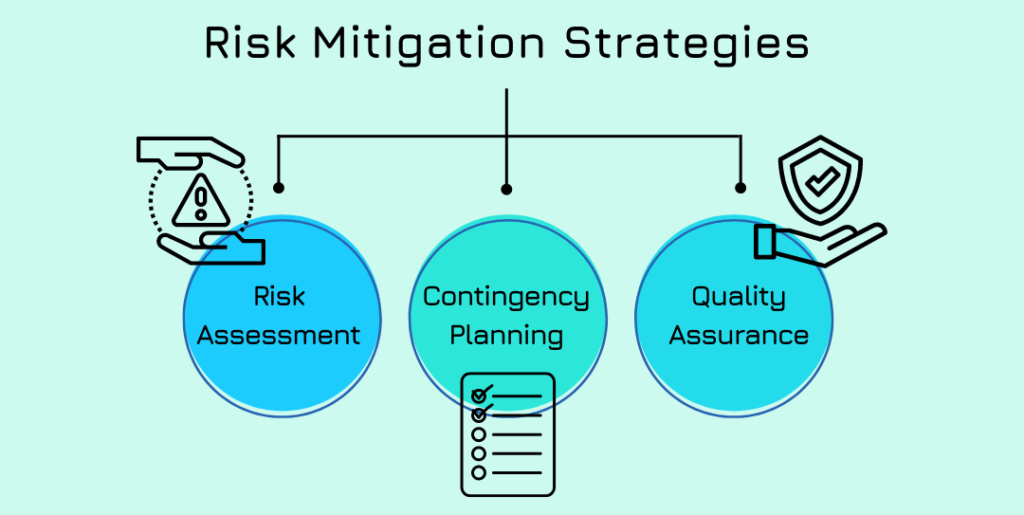
Cutting Costs by Outsourcing Your Software Development
In today’s competitive business landscape, companies are actively exploring ways to cut costs while maintaining quality and efficiency. Outsourcing your software development has emerged as a key strategy, enabling companies to leverage external vendors or offshore teams. This approach offers numerous benefits, including access to global talent, streamlined processes, and significant cost savings, all contributing to improved operational efficiency.
1. Reduced Infrastructure and Overhead Costs
Outsourcing eliminates the need for companies to invest heavily in infrastructure, office space, equipment, and other overhead costs associated with maintaining an in-house development team. External vendors are responsible for their own infrastructure, allowing businesses to focus their resources on core objectives rather than non-core support functions. In fact, studies have shown that outsourcing can lead to savings of up to 60%.
2. Access to Global Talent Pool
One of the primary reasons companies opt for outsourcing is access to a vast global talent pool. Instead of being restricted to local talent, businesses can tap into skilled professionals from around the world. This not only allows access to specialized expertise but also reduces labor costs significantly. Countries with lower labor costs, such as India, Pakistan, or the Philippines, often provide high-quality development services at a fraction of the cost compared to hiring in-house teams in developed countries.
Specialized Expertise
Project Cost Savings
Flexible Support Cycles
3. Flexible Scaling and Resource Management
Outsourcing your software offers flexibility in scaling resources based on project requirements. Businesses can quickly ramp up or downsize teams as needed, avoiding the challenges of hiring and training new employees or dealing with layoffs during lean periods. Furthermore, This agility allows companies to adapt to market changes more effectively while optimizing costs associated with workforce management.
On-Demand Resources: Outsourcing allows businesses to scale their development teams up or down based on project needs, avoiding the costs and complexities of hiring or downsizing internal teams.
Agile Project Management: With outsourcing, companies can quickly adapt to changing project requirements, allocating resources efficiently to meet deadlines and achieve project milestones effectively.
Cost Optimization: By scaling resources as needed, businesses can optimize costs by paying only for the services and expertise required for specific project phases, reducing overhead and operational expenses and efficiencies long term.
4. Cost-effective Development Lifecycle
Partnering with an outsourcing provider often results in a more cost-effective software development lifecycle. From initial project scoping and requirements gathering to design, development, testing, and maintenance, outsourcing companies follow streamlined processes honed through experience. This efficiency translates into reduced development time and costs without compromising on quality or functionality.
5. Focus on Core Competencies
By outsourcing non-core activities like software development, companies can redirect their internal resources and expertise towards core business functions. This strategic focus not only improves overall productivity and innovation but also enhances competitiveness in the market. Outsourcing allows businesses to leverage external expertise while maintaining control and oversight over project outcomes.
6. Risk Mitigation and Compliance
Outsourcing partnerships often come with built-in risk mitigation strategies and compliance frameworks. Reputable outsourcing vendors adhere to industry best practices, quality standards, and data security protocols, reducing the risk of project failures, data breaches, or regulatory non-compliance. This proactive approach helps businesses mitigate potential risks and ensures project continuity and success. Here are some strategies to outsourcing can provide you with to mitigate risk:

Risk Assessment
Contingency Planning
Quality Assurance
Wrapping Up...
In conclusion, outsourcing your software development offers compelling advantages as a cost-cutting initiative for businesses of all sizes. Moreover, with its expected growth at approximately 70% this year, companies are continuing to cut costs through these exact same approaches. These range from access to global talent and reduced infrastructure costs to flexible scaling, streamlined development lifecycles, and enhanced focus on core competencies. Outsourcing enables companies to achieve significant cost savings while driving innovation and competitiveness in today’s dynamic market environment. However, successful outsourcing requires careful vendor selection, clear communication, and robust collaboration frameworks to maximize the benefits and achieve long-term business objectives.
With these points in mind, choose DevDefy to guide you through these processes, ensuring smooth partnerships, robust skillsets, and successful project outcomes. Considering outsourcing? Press below to see some of our proud creations!
SHARE ME!
MORE ARTICLES











